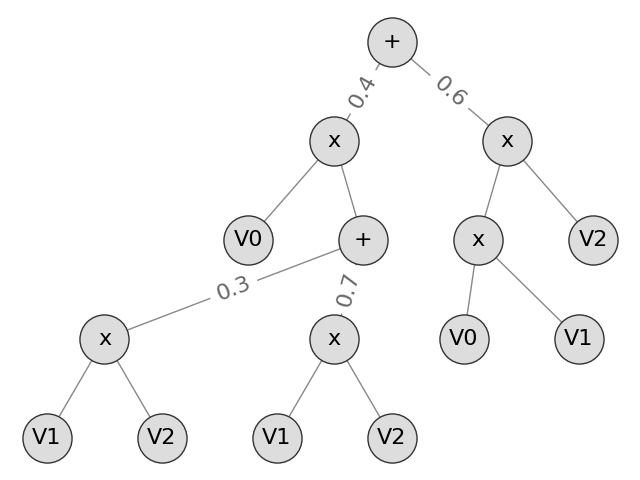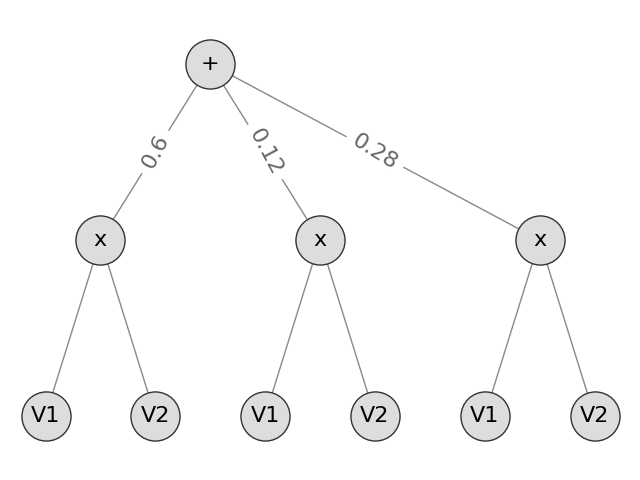Note
Click here to download the full example code
Marginalizing an SPN
“Marginalizing an SPN” means summing out all other non-relevant variables.
from spn.structure.leaves.parametric.Parametric import Categorical
from spn.structure.Base import Sum, Product
from spn.structure.Base import assign_ids, rebuild_scopes_bottom_up
from spn.io.Graphics import draw_spn
import matplotlib.pyplot as plt
We will start with the Sum-Product Network structure from the Composing SPNs from Sums and Products example.
p0 = Product(children=[Categorical(p=[0.3, 0.7], scope=1), Categorical(p=[0.4, 0.6], scope=2)])
p1 = Product(children=[Categorical(p=[0.5, 0.5], scope=1), Categorical(p=[0.6, 0.4], scope=2)])
s1 = Sum(weights=[0.3, 0.7], children=[p0, p1])
p2 = Product(children=[Categorical(p=[0.2, 0.8], scope=0), s1])
p3 = Product(children=[Categorical(p=[0.2, 0.8], scope=0), Categorical(p=[0.3, 0.7], scope=1)])
p4 = Product(children=[p3, Categorical(p=[0.4, 0.6], scope=2)])
spn = Sum(weights=[0.4, 0.6], children=[p2, p4])
assign_ids(spn)
rebuild_scopes_bottom_up(spn)
ax = draw_spn(spn)

If we want to marginalize this SPN by summing out all other variables to leave variables 1 and 2, we can do this as follows:
from spn.algorithms.Marginalization import marginalize
spn_marg = marginalize(spn, [1, 2])
This marginalizes all the variables not in \([1, 2]\), and create a new structure that knows nothing about the previous one nor about the variable 0.

Out:
<module 'matplotlib.pyplot' from '/opt/hostedtoolcache/Python/3.6.15/x64/lib/python3.6/site-packages/matplotlib/pyplot.py'>
Total running time of the script: ( 0 minutes 0.454 seconds)